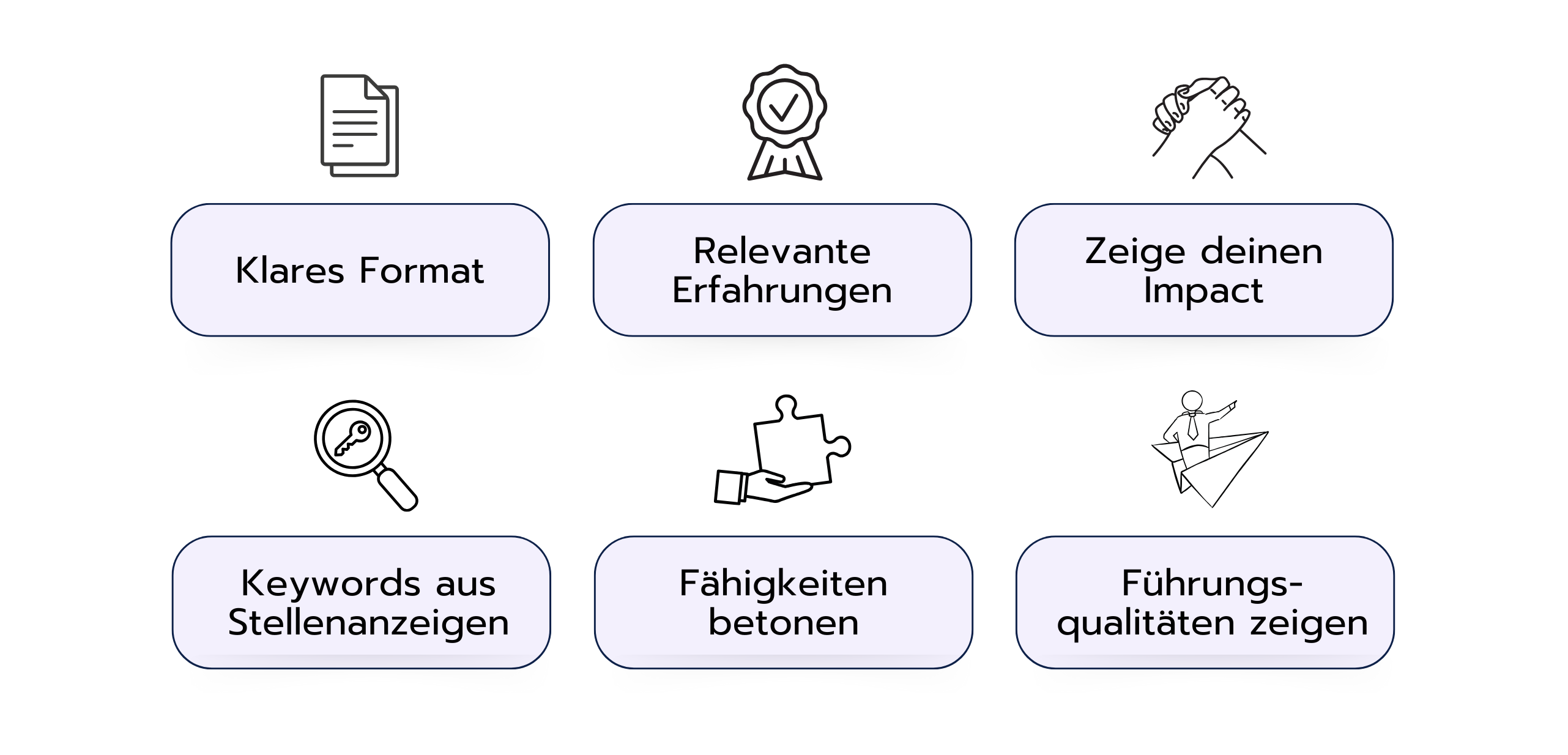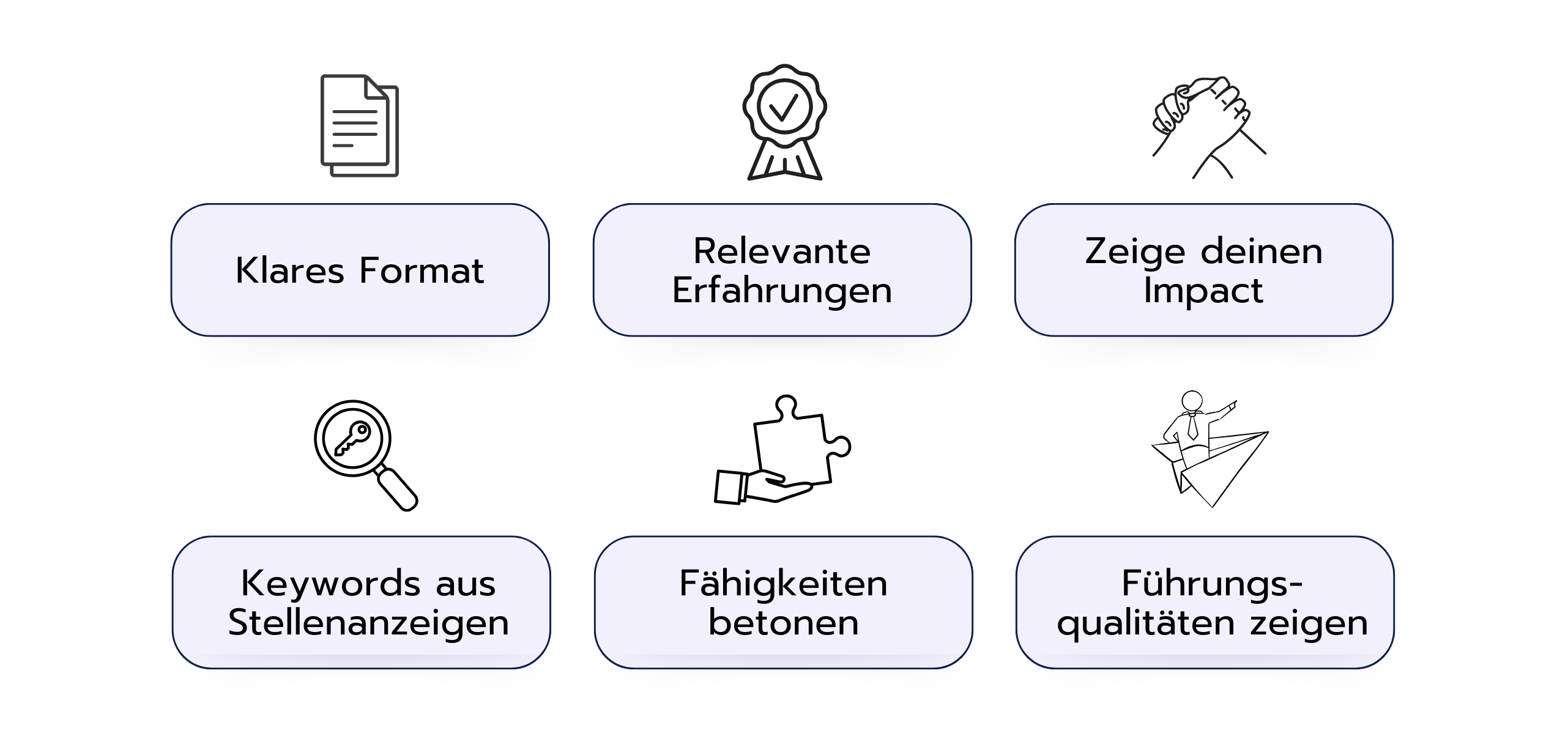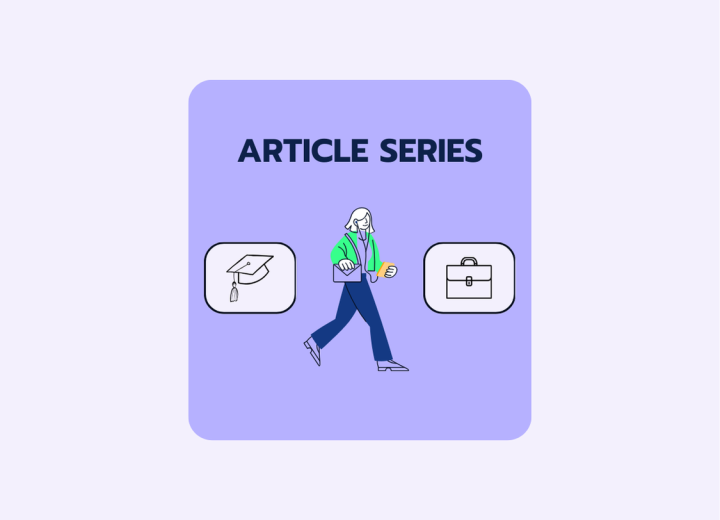Das Bewerbungsschreiben für ein Consulting-Praktikum kann schwierig sein, besonders wenn du dich bei mehreren Firmen bewirbst. Aber es gibt Möglichkeiten, den Prozess effizienter und wirkungsvoller zu gestalten. Mit einer Vorlage und vorformulierten Absätzen kannst du dein Bewerbungsschreiben für jede Firma und Rolle anpassen. Hier bekommst du Tipps, wie du dein Bewerbungsschreiben in kurzer Zeit massenproduzieren kannst, ohne die persönliche Note und Wirkung zu verlieren.
Schritt 1: Überlege dir die wichtigsten Themen für deine Absätze, basierend auf dem, was Consulting-Firmen suchen. Recherchiere jede Firma und schau, welche Qualifikationen sie suchen, und fasse diese in „Themen“ zusammen. Wähle die, die am besten zu deinen Fähigkeiten und Erfahrungen passen. Mögliche Themen sind analytische Fähigkeiten, Kommunikation, Kundenmanagement, Führung, Teamarbeit, Diversität und Lernbereitschaft.
Schritt 2: Schreibe deine Absätze kurz und prägnant (3-5 Sätze) und fokussiere dich auf deine Erfolge. Stelle sicher, dass jeder Absatz mit einer Aussage beginnt, die mit den Werten der Firma übereinstimmt, wie zum Beispiel: „Firma X legt großen Wert auf Y, und das tue ich auch.“
Schritt 3: Wähle drei vorformulierte Absätze aus, die am besten zu jeder Firma und Rolle passen. Finde heraus, worauf die Firma am meisten Wert legt, und integriere die Absätze, die deine relevanten Fähigkeiten und Erfahrungen zeigen.
Schritt 4: Passe den Text an, indem du Wörter änderst, um die Sprache der Firma zu verwenden. Ersetze den Firmennamen, das Büro und andere Details. Auch wenn Absatz A das gleiche Thema behandelt, wird die Verwendung der eigenen Sprache der Firma zeigen, dass du dich gut informiert hast und echtes Interesse an der Firma hast.
Das Massenerstellen deines Bewerbungsschreibens mit vorformulierten Absätzen spart Zeit und hilft dir, ein maßgeschneidertes und wirkungsvolles Schreiben für jede Firma und Rolle zu erstellen. Indem du die Schritte befolgst, kannst du deine Fähigkeiten und Erfahrungen präsentieren, während du gleichzeitig mit den Werten und der Sprache der Firma übereinstimmst. So kannst du diese Zeit für wichtigere Aktivitäten wie die Vorbereitung auf Bewerbungen und Case-Interviews nutzen. ✉️
👉 Hier ist ein passender Artikel für dich: Consulting Anschreiben.








